Wondermondo 🢖 World 🢖 Wonders of Africa 🢖 Wonders of Mali
Territory
Wonders of Mali
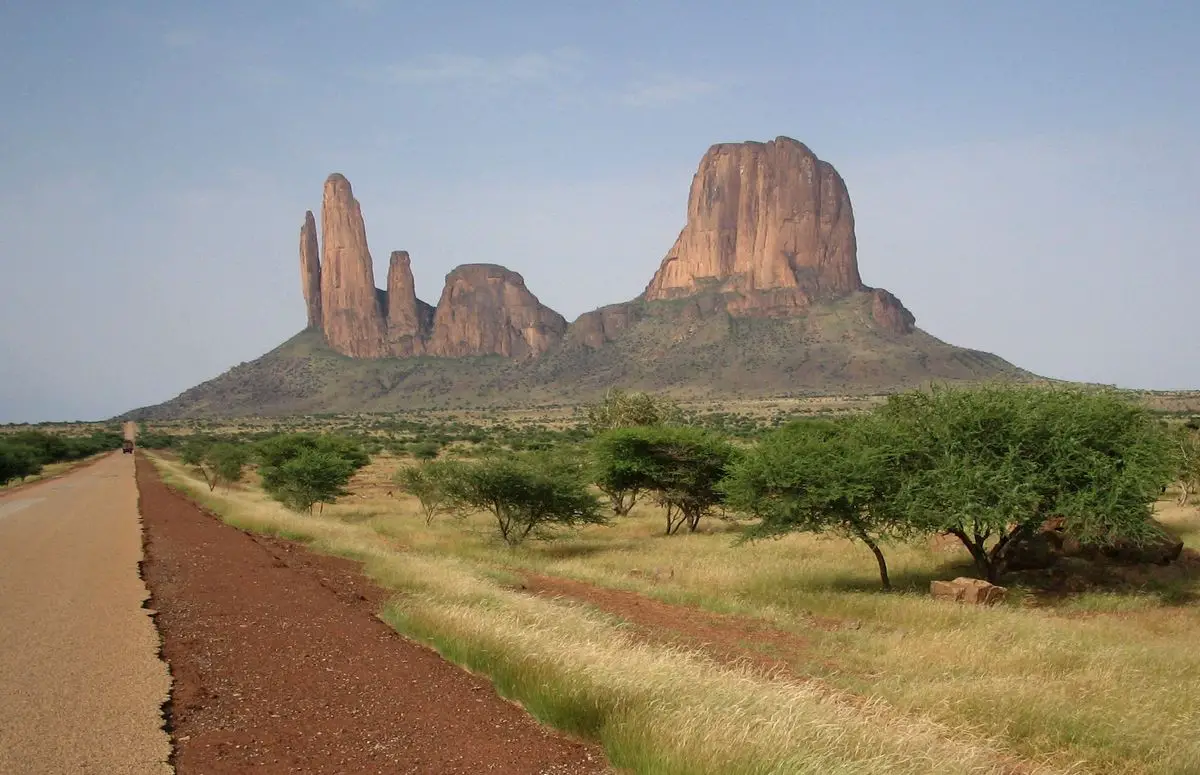
 Highlights
Highlights
It is well possible that the most romantic African country is Mali. Like many countries in this beautiful continent, Mali nowadays has complex times, but in the past, it has seen prosperity, flourishing of science, and political importance. Here developed several empires, were built enormous cities. Traces of those times have been preserved up to this day – in the highly unusual architecture, living traditions, ruins of once-prosperous cities, and art monuments.
The most amazing wonders of Mali are:
- Ancient cities – centres of trade and science. Especially interesting are the legendary cities of Timbuktu and Djenné, which once were some of the most affluent and splendid cities in the world. Libraries in Timbuktu have more than 700,000 medieval manuscripts – an incredible wealth!
- Traditional landscape of Tellem and Dogon people along Bandiagara Escarpment. Everything here is unusual – up to 500 m high and some 150 km long cliff wall with ancient settlements and burial caves cut in it, highly unusual architecture of Dogon people on the top and at the base of cliffs, cliff paintings, numerous living traditions.
Map with the described wonders of Mali
If you see this after your page is loaded completely, leafletJS files are missing.
 Top 25 wonders of Mali
Top 25 wonders of Mali
Geological wonders
Mount Hombori
Mopti
The tallest mountain in Mali – an isolated monolith with nearly steep sides, rising some 750 m above the surroundings. Caves in this mountain have been inhabited for some 2000 years.
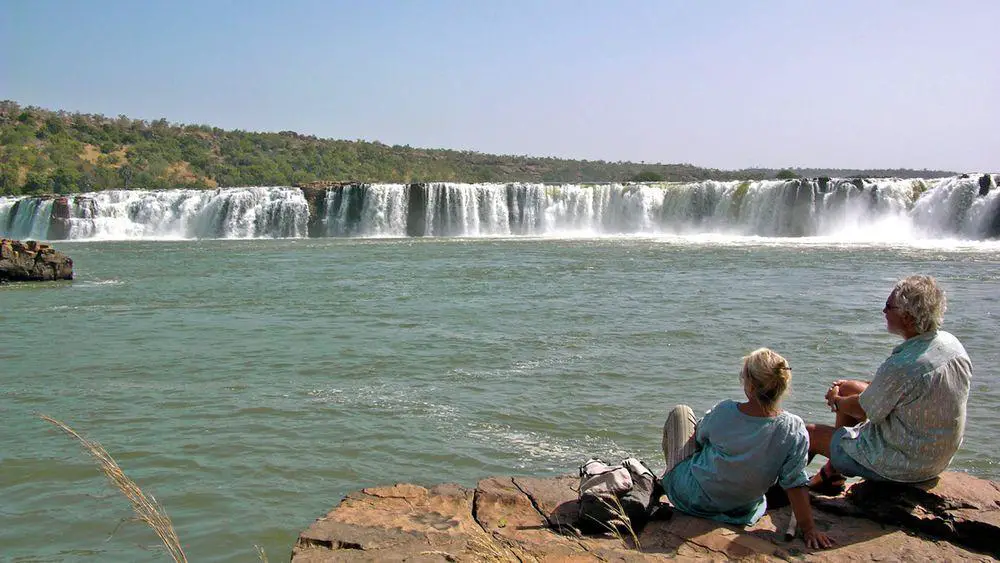
Hand of Fatima
Mopti
One of the most impressive rock formations in the world – a group of vertical cliffs up to 600 m high and resembling giant hands rising from the desert. A sacred place to locals.
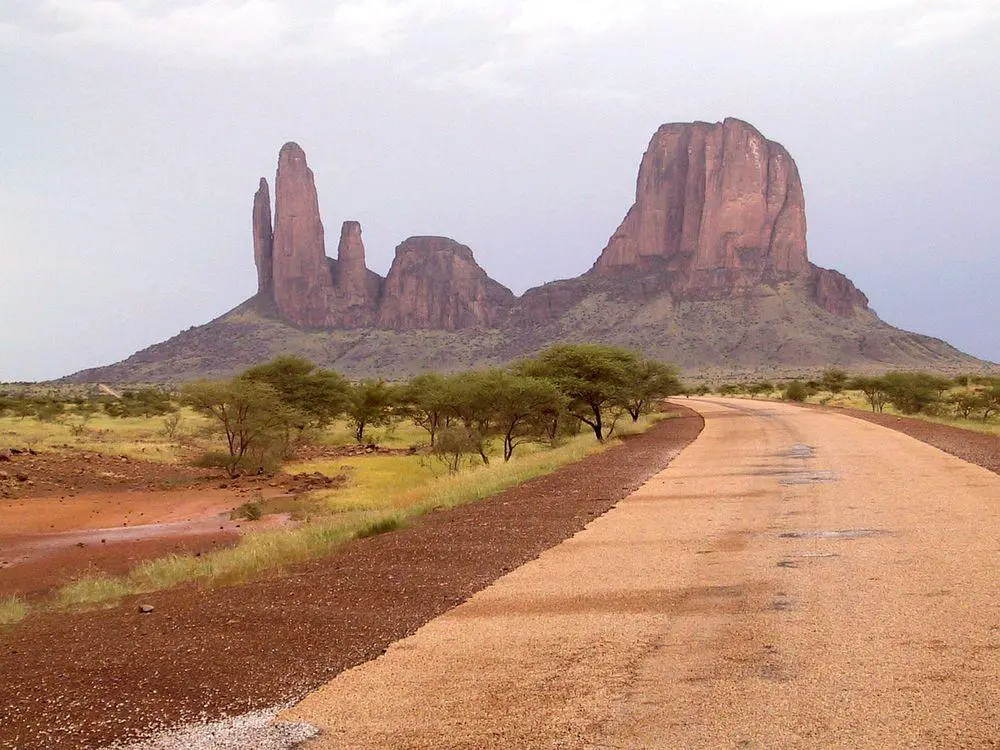
Arch of Kamadjan
Koulikoro
A large, picturesque natural arch.
Fara Missiri
Sikasso
A mysterious grotto that is important to the local animist religion. This grotto is adorned with stalactites and stalagmites and is some 50 – 80 m high.
Archaeological wonders
Adrar des Ifoghas (Adrar des Iforas)
Kidal
Sandstone massif with many rock drawing sites. Includes a gorgeous drawing of a group of giraffes.
Kita Kourou cave paintings
Kayes
A sacred mountain for local animists. Caves and grottoes in this mountain are adorned with old cave paintings.
Architecture wonders
Great Mosque of Djenné
Mopti
The largest adobe building in the world with a unique design. The first mosque here since the 13th century. The current structure was built in 1907 or 1909.
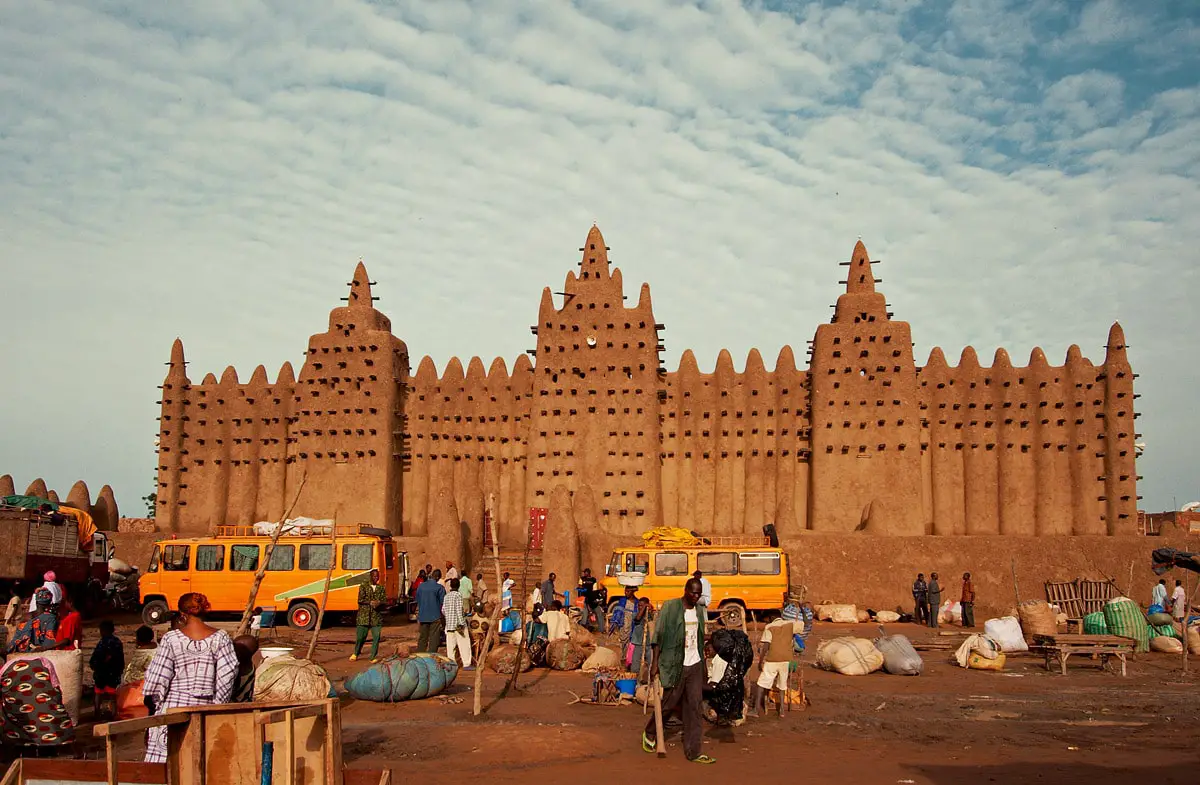
Songo
Mopti
A traditional Dogon village with interesting adobe buildings. Dogon people have preserved their traditional way of life, including the circumcision ritual with associated petroglyphs. Many other villages in this area are of similar interest to travelers and explorers.
Timbuktu
Tombouctou
The historical center of once a very important trade and knowledge center, once one of the most prosperous places in the world. World center of Islamic learning in the 13th – 17th century, more than 700,000 valuable Timbuktu manuscripts have been preserved here up to this day in the libraries of the city. City has preserved much of its historical adobe architecture.
Djenné
Mopti
An important trade city in the 15th – 17th centuries. The old city of Djenné has been built entirely from adobe – mud bricks – and represents a distinct tradition in urban planning. Especially impressive is the large Great Mosque, built in 1907.
Tellem burial caves in Bandiagara escarpment
Mopti
In different (mostly undisclosed) locations of Bandiagara escarpment are found caves that are filled with bones and utensils of Tellem people who left this area in the 16th century. There are caves where thousands of skulls are located. The historical textiles have been well preserved in the dry climate.
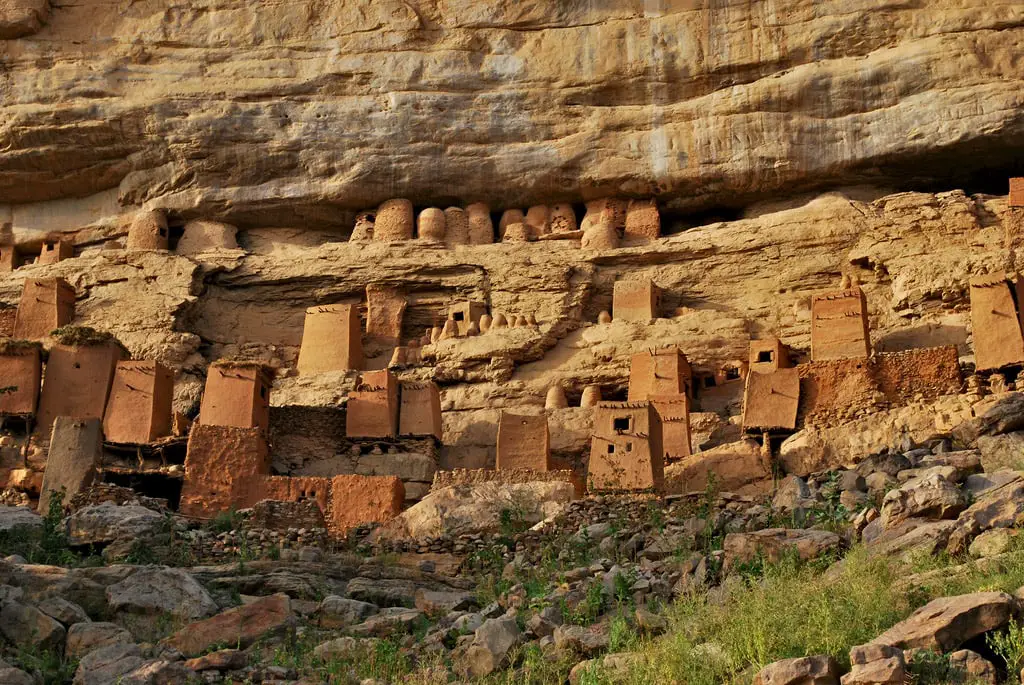
Indelou
Mopti
Village of Dogon animists on the top of Bandiagara Escarpment. Animist religion here is active with many rituals on-going and many sacred places.
Jenne-Jeno (Djenné-Jéno)
Mopti
One of the oldest cities in sub-Saharan Africa developed around the 3rd century BC. Between 750 and 1000 AD there lived up to 27,000 people. A fortification wall around the city was built sometime around 850 AD, the city was abandoned sometime around 1400 AD.
Yougou Dogorou and Yougapiri
Mopti
This village has been hewn into a vertical cliff by the Tellem people. Tellem have left the area, and Dogon people have built their traditional houses at the base of the cliff. Similar villages are widespread along the Bandiagara Escarpment.
Djinguereber Mosque
Tombouctou
Mosque and famous learning center, built in 1327 from the earth.
Tireli (Tereli)
Mopti
One of the most beautiful Dogon villages.
Tomb of Askia
Gao
Unusual, 17 m high pyramidal adobe structure – the purported tomb of Askia Mohammad I, emperor of Songhai. Constructed at the end of the 15th century AD. Today used as a mosque.
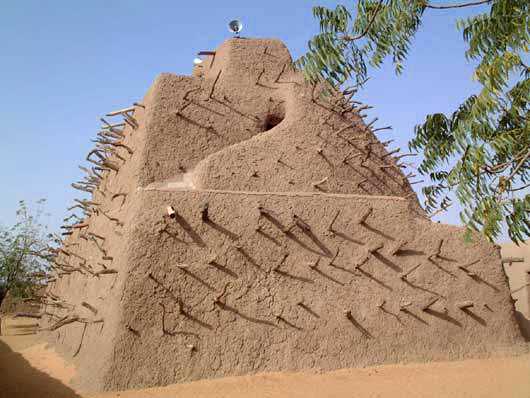
Sankore Madrasah
Tombouctou
An ancient learning center, one of three great mosques in Timbuktu. The first building was constructed here in 988 AD. This learning center could house up to 25,000 students.
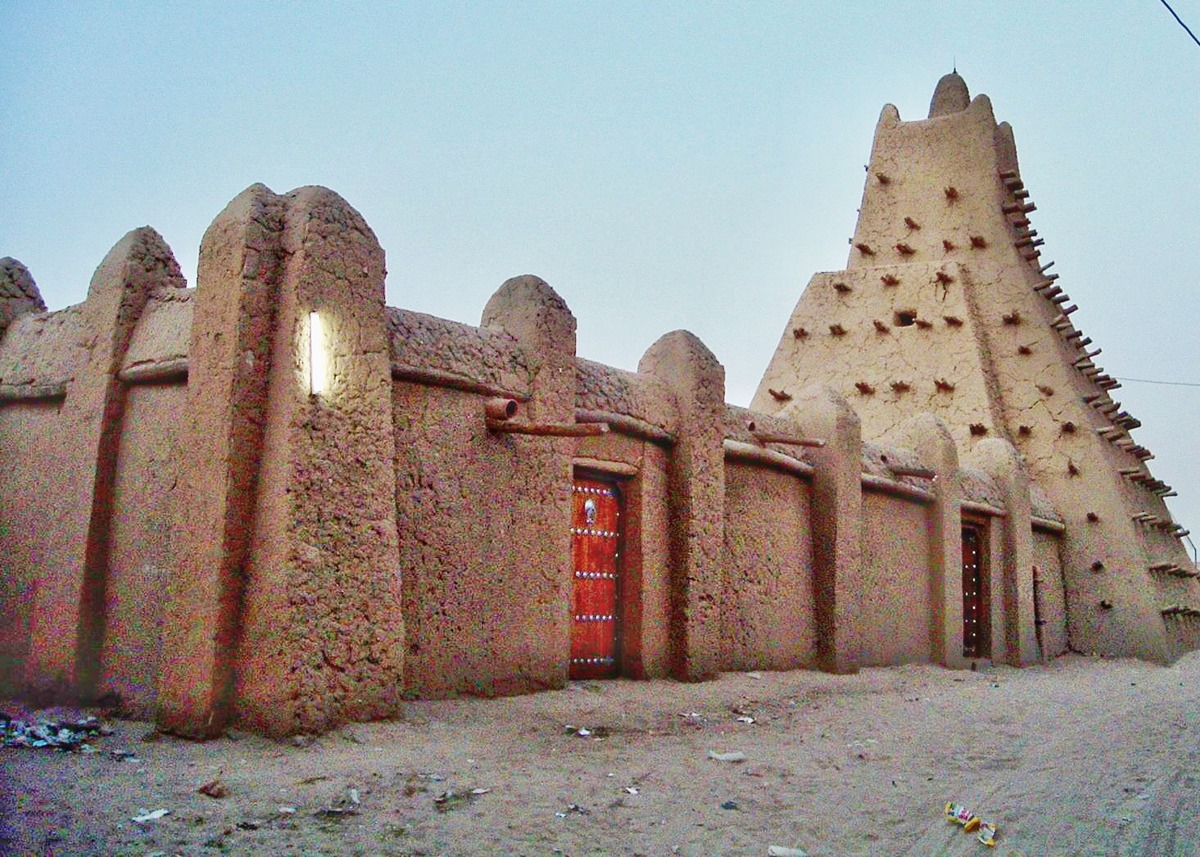
Kamablon
Koulikoro
A circular brick building with a conical roof. It is reroofed every 7 years and the walls inside and outside are painted with interesting pictographs that predict what will happen in the coming seven years.
Atô
Mopti
One of the most spectacular Dogon villages at the foot of the Bandiagara Escarpment.
Ogol Da in Sangha
Mopti
Animist part of a Dogon city with numerous temples, fetishes, and shrines.
Sidi Yahya
Tombouctou
The historical center of learning. It consists of a mosque and madrassa, built in 1400 – 1440. Impressive adobe structure.
Sirimou Mosque
Mopti
An unusual, beautiful adobe structure.
Niono Mosque
Ségou
Large mosque from adobe, similar to the famous Djenné Mosque. Constructed in 1948, later enlarged.
 Recommended books
Recommended books
Mali, 3rd (Bradt Travel Guide)
In Mali, you may float past hippopotami whilst sailing down the River Niger, greet 300 herdsmen atop brilliant white camels, or stand on an escarpment looking out over the mystical cliff villages of the Dogon people. This new edition features thoroughly updated information on everything from elephant migrations to rock-climbing.
Mali in Depth: A Peace Corps Publication
In 1235, the Malinke people of the small state of Kangaba became involved in a struggle for independence. Their leader, a young man named Sundiata Keita, fielded an impressive army to meet the intruding Tekrur forces.

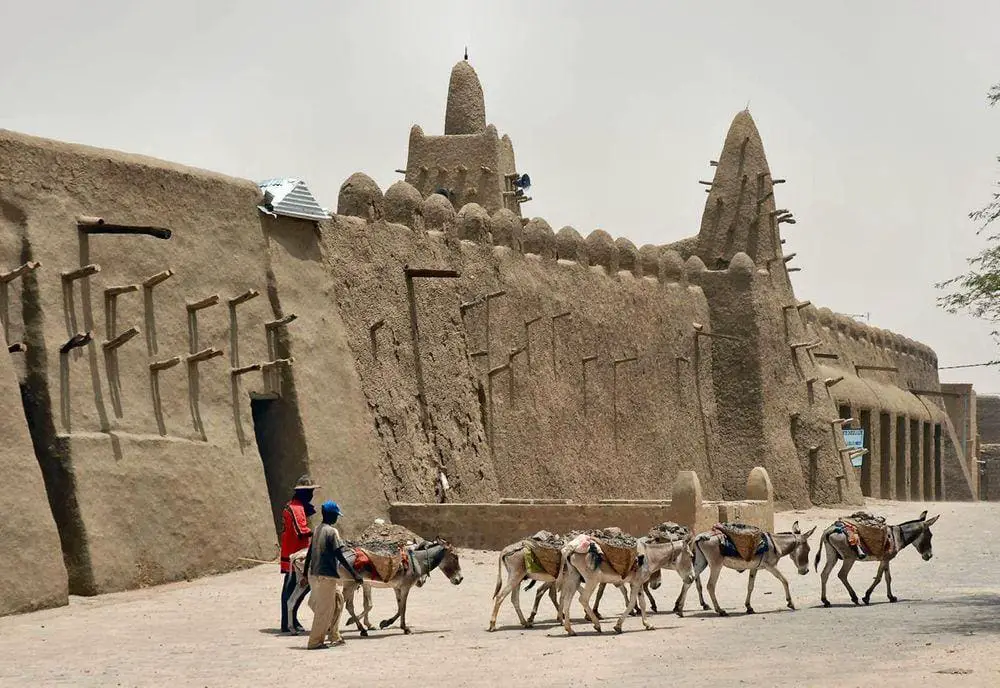


Timbuktu Sucks
Fortnite Better